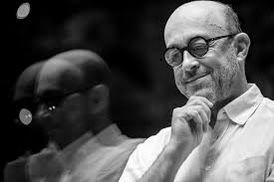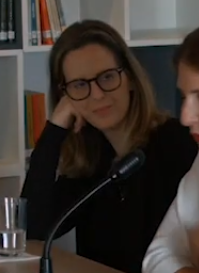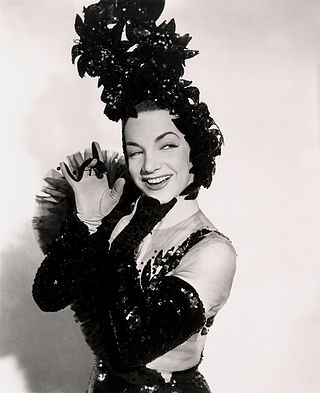
Moacyr Jaime Scliar was a Brazilian writer and physician. Most of his writing centers on issues of Jewish identity in the Diaspora and particularly on being Jewish in Brazil.

Antônio Drauzio Varella is a Brazilian doctor, educator, scientist and medical science popularizer in the press and TV, as well as best-selling author. In addition to medicine, Varella is a public commentator on issues such as prison conditions, social welfare, government, literature and his professed atheism and skepticism.

Antonio Carlos Liberalli Bellotto is a Brazilian musician and writer, best known as the lead guitarist of Brazilian rock band Titãs. He has also written and released several books.
"Disseram que Voltei Americanizada" is a samba song written by Luiz Peixoto and Vicente Paiva especially for Carmen Miranda. It is a direct answer to accusations that Miranda put her Brazilian roots aside to become famous enough in Hollywood. Miranda recorded it on September 2, 1940, for Odeon Records. It was one of the last songs she recorded in Brazil, alongside "Voltei pro morro", "Disso é que eu gosto" and "Diz que tem", all of them written by Paiva in a similar way to "Disseram que voltei americanizada".

Eduardo Giannetti da Fonseca is a Brazilian economist and author, educated at the University of São Paulo, with specialization in Social Science, Economics, Administration, and Accounting.

Ruy Castro is a Brazilian author and journalist. In 1996 he was a co-winner of the Prêmio Jabuti. He is known for his writings concerning Bossa nova and for his biographies, profiling figures such as Garrincha, Nelson Rodrigues and Carmen Miranda.

Laurentino Gomes is a Brazilian journalist and writer. He is best known as the author of the trilogy of books that cover the history of Brazil and Portugal during the 19th century. He has already released two of the three books: 1808, about the transfer of the Portuguese Court to Brazil; and 1822, about the Independence of Brazil. He is about to release the third and final book of the series, 1889, about the Proclamation of the Republic.

Vanessa Barbara is a Brazilian journalist and author. She is a columnist for the newspaper O Estado de S. Paulo, having also written for the magazine piauí and the newspaper Folha de S. Paulo. Her articles are also featured in the International New York Times.

Alô, Alô, Carnaval is a 1936 Brazilian musical comedy film directed and produced by Adhemar Gonzaga and Wallace Downey, and released by the Cinédia production company.
Carol Bensimon is a Brazilian writer.

Alexandre Vidal Porto is a Brazilian writer and diplomat.
Noemi Jaffe is a Brazilian writer, teacher and literary critic.

Tatiane "Tati" Bernardi Teixeira Pinto is a Brazilian short story writer, novelist, cronista, screenwriter and journalist. Her works are particularly directed towards young women.
A Voz do Carnaval is a 1933 Brazilian short film documentary, directed by Adhemar Gonzaga and released by production company Cinédia. With no copies preserved, it is considered a lost film.

This is a complete filmography of Carmen Miranda, a Portuguese-Brazilian singer, actress, and dancer.

João Carlos Reiners Terron, writing as Joca Reiners Terron, is a Brazilian poet, novelist, designer and editor.
This is a bibliography of books by or about the Brazilian director Luiz Fernando Carvalho.

Lilia Katri Moritz Schwarcz is a Brazilian historian and anthropologist. She is a doctor in social anthropology at the University of São Paulo, full professor at the Faculdade de Filosofia, Letras e Ciências Humanas in the same institution, and visiting professor at Princeton University.
Maria Beatriz Fonseca Corrêa do Lago, better known as Bia Corrêa do Lago is a Brazilian writer, journalist and researcher. She is the daughter of writer Rubem Fonseca, who was awarded the highest literary award in the Portuguese language – the Prêmio Camões – and is the author of numerous books, including Agosto, O Caso Morel, O Cobrador, and Bufo & Spallanzani.
Victor Doblas Heringer was a Brazilian Prêmio Jabuti-winning novelist, translator, cronista and poet, famous for his novels Glória (2012) and O Amor dos Homens Avulsos (2016).













